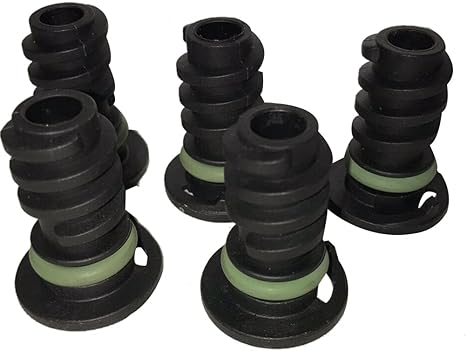Understanding Trailer Wheel Bearings and Seals for Optimal Performance and Safety
Understanding Trailer Wheel Bearings and Seals
When it comes to maintaining a trailer, one crucial aspect that often gets overlooked is the wheel bearings and seals. These components play an essential role in the overall performance, safety, and longevity of your trailer. Let’s delve into why they are important, how they work, and when you should consider replacing or maintaining them.
What Are Wheel Bearings?
Wheel bearings are sets of steel balls or rollers that allow the trailer wheels to rotate smoothly with reduced friction. They sit in the hub of each wheel and connect the wheel to the axle. In many trailers, there are two main types of bearings tapered roller bearings and ball bearings. Tapered roller bearings are commonly used because they are capable of handling both radial and axial loads, making them ideal for heavy-duty applications.
The Importance of Wheel Bearings
Properly functioning wheel bearings are crucial for the safe operation of your trailer. They help to keep the wheels aligned and minimize friction, which in turn reduces heat build-up. If the bearings are worn out or improperly lubricated, it can lead to overheating, reduced towing efficiency, and even catastrophic wheel failure. Regular inspection and maintenance of wheel bearings can prevent these issues, ensuring both safety and optimal performance on the road.
What Are Wheel Seals?
Wheel seals are the protective barriers that sit between the hub and the bearing, preventing dirt, water, and debris from entering the bearing assembly. They help to keep the grease used for lubrication contained within the bearing while also keeping contaminants out. This plays an instrumental role in extending the life of the bearings and ensuring the trailer operates smoothly.
Signs of Wear and When to Replace
It's essential to monitor the condition of both the bearings and seals. Here are some common signs that indicate they may need to be serviced
1. Unusual Noises If you hear a grinding or humming noise coming from the wheel area while driving, it could signify that the bearings are failing.
trailer wheel bearings and seals

2. Excessive Heat After a long drive, carefully touch the wheel hub. If it feels excessively hot, it may be due to improper lubrication or worn-out bearings.
3. Grease Leakage If you notice grease leaking from the hub, it's a sign that the seals may be damaged and need replacement.
4. Vibration During Driving Feeling vibrations in the towing vehicle can also indicate bearings are not functioning correctly.
Regular inspections are recommended, especially before long trips. Bearings should be cleaned, inspected, and greased at least once a year, or more often if the trailer is used frequently.
Maintenance Tips
1. Regular Inspections Check the bearings and seals during every tire rotation or when you perform routine maintenance on your trailer.
2. Lubrication Ensure that the bearings are properly lubricated as specified by the manufacturer. Over-greasing or under-greasing can lead to failure.
3. Replace Worn Parts Promptly When you notice any signs of wear, replace the bearings and seals immediately to avoid further damage and ensure safety.
4. Use Quality Components Always opt for high-quality bearings and seals. Investing in reliable parts will save you money and hassle in the long run.
Conclusion
Maintaining trailer wheel bearings and seals is an integral part of trailer care that should not be overlooked. With the right knowledge and routine maintenance, you can ensure your trailer wheels function optimally and safely. By keeping an eye out for signs of wear and addressing issues promptly, you can extend the life of your trailer and enjoy a smoother ride. Always consult your trailer’s manual for specific maintenance guidelines and seek professional assistance if you're unsure about your skills in handling these components.
-
Understanding the Front Main Engine Seal: Purpose, Maintenance, and Installation
News Jul.29,2025
-
Understanding O-Rings and Seal Rings: Types, Applications, and Custom Solutions
News Jul.29,2025
-
Understanding Crankshaft Oil Seals: Rear Seals, Pulley Seals, and Their Role in Engine Integrity
News Jul.29,2025
-
The Importance of Front and Rear Crankshaft Seals in Engine Performance and Oil Management
News Jul.29,2025
-
Crank Oil Seals: Functions, Types, and Cost Considerations in Engine Maintenance
News Jul.29,2025
-
A Comprehensive Guide to O-Rings and Seals: Types, Materials, and Global Applications
News Jul.29,2025
-
Mastering Diesel and Performance Engine Maintenance: A Guide to Critical Oil Gaskets
News Jul.28,2025
Products categories















